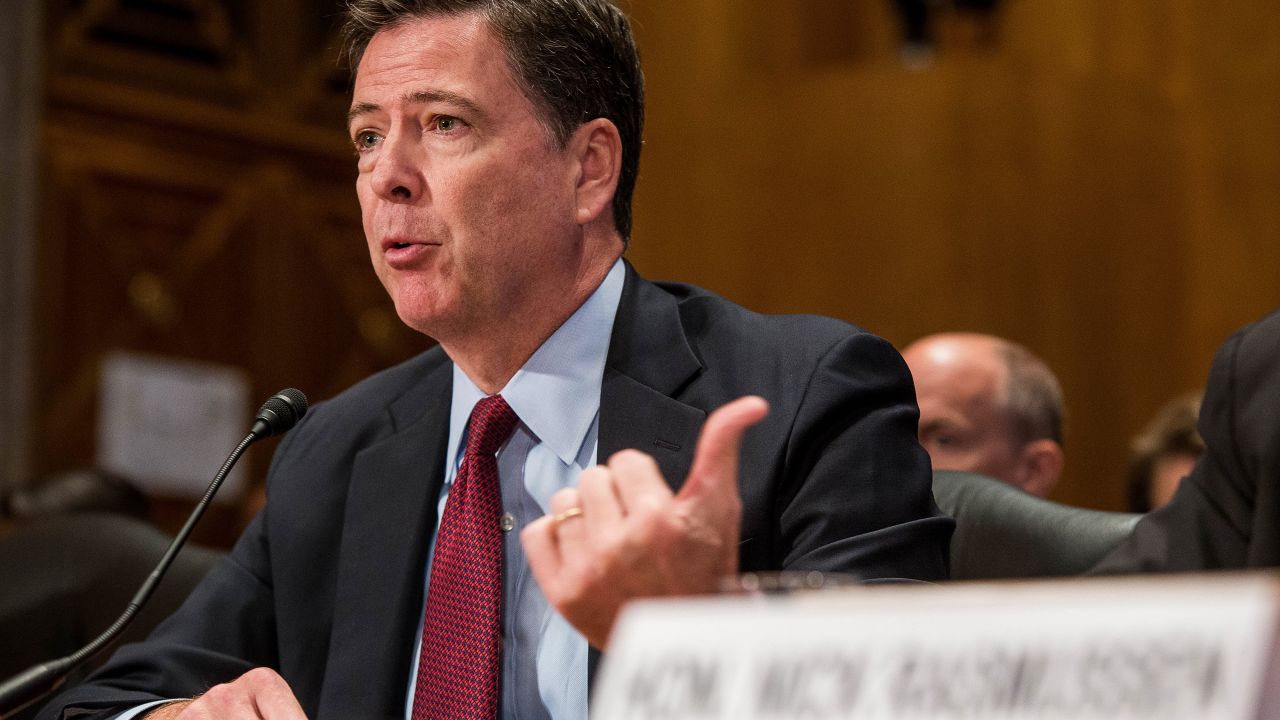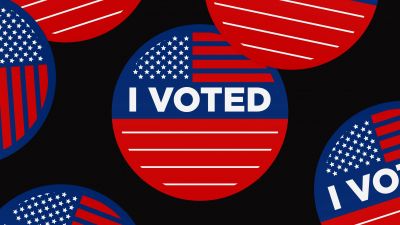
James Comey, director of the Federal Bureau of Investigation (FBI), speaks during a Senate Homeland Security and Governmental Affairs Committee hearing on Tuesday, Sept. 27, 2016. (Zach Gibson/Bloomberg via Getty Images)
We produce this news digest every weekday. You can to receive these updates as an email newsletter each morning.
The latest October surprise –> The last-minute announcement that could potentially alter the outcome of the presidential race has become an American political tradition. We thought the release of the Accesss Hollywood tape was this year’s October surprise, but on Friday yet another arrived in the form of a letter to Congress from FBI Director James Comey stating that a new batch of previously unseen emails, possibly related to the Clinton email controversy, had turned up on the computer of none other than Anthony Weiner, estranged husband of top Clinton advisor Huma Abedin. Ex-Congressman Weiner is being investigated for allegedly sexting with a minor.
The media leapt into action, calling Comey’s announcement a game changer although it may be weeks before we know the actual content of the emails. Michael Schmidt and Matt Apuzzo have an explainer at The New York Times to get you up to speed.
Meanwhile, many in and out of the government are expressing dismay at Comey’s timing. “I am deeply concerned about FBI Director James B. Comey’s decision to write a vague letter to Congress about emails potentially connected to a matter of public, and political, interest. That decision was incorrect. It violated long-standing Justice Department policies and tradition,” Eric Holder, the former attorney general, wrote in The Washington Post. Former George W. Bush ethics advisor Richard Painter writes in The New York Times that he has filed an ethics complaint with the FBI Office of Special Counsel and the Office of Government Ethics.
A Wall Street Journal report by Devlin Barrett and another by Yahoo News’ Michael Isikoff paint a picture of an FBI internally disorganized and polarized by its investigation of Clinton and this latest batch of emails. By the time Comey went public, members of the agency had known for weeks that Weiner’s computer had possibly relevant emails, but still did not have the warrant needed to read them — meaning that even as he made the announcement, Comey himself did not know what is in the emails.
But this last-minute news may not change much. A Politico/Morning Consult poll conducted over the weekend finds that, while most voters have heard about Comey’s announcement, few have changed their minds about their preferred candidate.
Down-ballot pile on –> Slate’s Jim Newell has been watching US Senate debates in four swing states: Pennsylvania, Nevada, Florida and Ohio. And he found that in most cases, Democrats were doing little to make their case to voters. Instead, they were making a case against Trump. Newell writes: “As with Tim Kaine’s performance against Mike Pence in the vice presidential debate, the Democratic candidates seemed content to get edged out in round after round so long as they were able at some point to reference Donald Trump. This is the blessing and the curse of running against Trump in a down-ballot race: He’s a walking catastrophe who pulls your Republican rival into striking distance; he also narrows your vocal range and condemns you to unimaginative, cookie-cutter, one-note campaign strategies.”
Trump and white nationalism –> Over a third of Trump’s supporters follow white nationalists on Twitter, according to research by media analytics firm Demographics Pro. That might not sound surprising — people follow all types on Twitter without necessarily agreeing with them — but, by comparison, only 16 Clinton supporters out of the 10,000-person sample followed white nationalists.
Facebook’s racial targeting –> A new ProPublica investigation looks at Facebook’s ability to let advertisers target ads by “ethnic affinity.” Reporters Julia Angwin and Terry Parris, Jr. write: “When we showed Facebook’s racial exclusion options to a prominent civil rights lawyer John Relman, he gasped and said, ‘This is horrifying. This is massively illegal. This is about as blatant a violation of the federal Fair Housing Act as one can find.'” They note that these advertising options also make Facebook likely to run afoul of the Civil Rights Act of 1964 which prohibits the “printing or publication of notices or advertisements indicating prohibited preference, limitation, specification or discrimination” in employment recruitment.”
Morning Reads was compiled by John Light and edited by Michael Winship. See a story that you think should be included in Morning Reads? Tell us in the comments!
We produce this news digest every weekday. You can to receive these updates as an email newsletter each morning.



